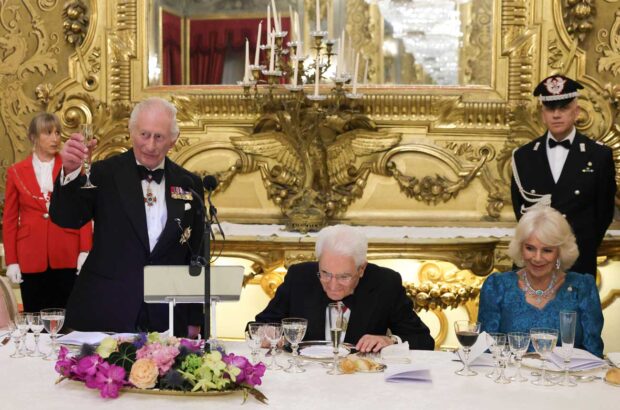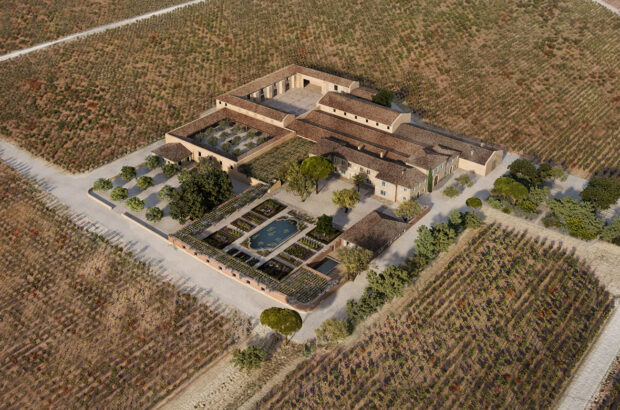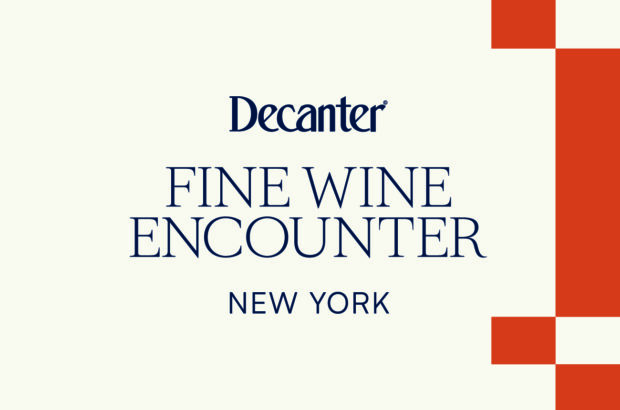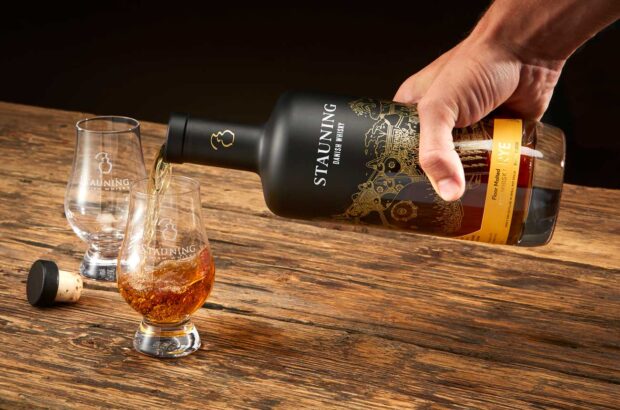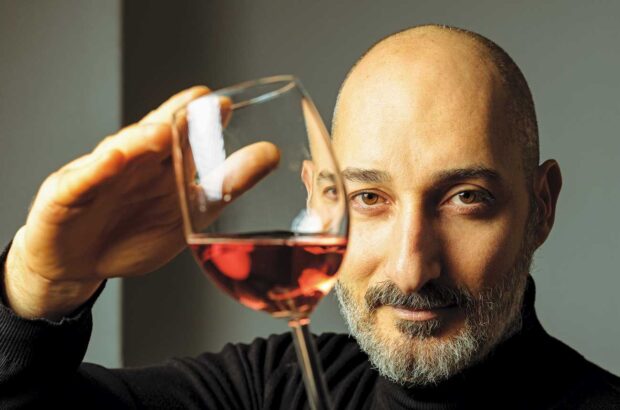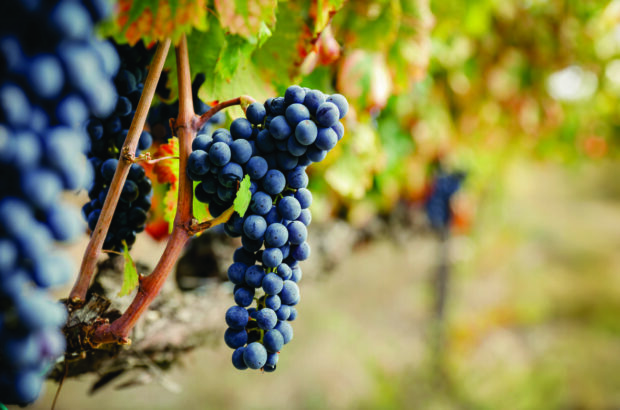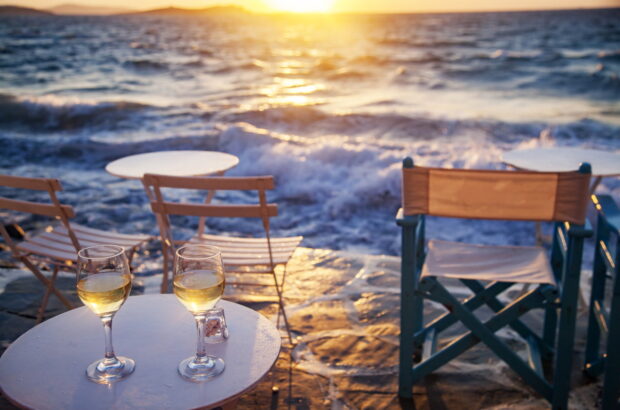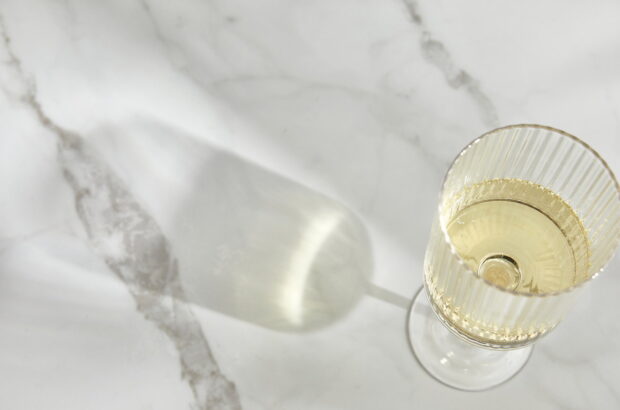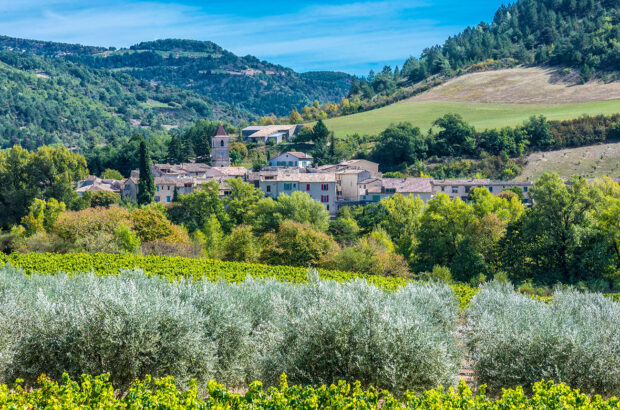In The Way, an Emilio Estevez-directed movie released in 2010, Martin Sheen plays an ageing father who walks 800km of the Camino de Santiago, in honour of his son. Along the way he bonds with a motley crew of travellers, who have all embarked upon the challenging journey with their own motivations.
Watching this shortly after returning from Extreme Wine, an intensive wine boot camp in the southern Rhône, it was hard to miss the parallels. A strange comparison to draw, one might think, when you’re talking about a study programme billed as ‘the Rolls Royce of wine courses’ and ‘the world’s top luxury wine boot camp’. And yes, accommodation is in an impeccably restored, luxurious medieval priory with infinity pool, helipad and private chef, rather than bunk-lined dorms or a sleeping bag on the side of the road, Camino style.
But the intensity of experience and the camaraderie that forms as a result of that are alike. As is the sense of achievement that you feel when you put down your pen, and wine glass, at the finish of the end-of-week exam.
Each summer, La Verrière, a stunningly beautiful estate high in the hills on the borders of the Rhône and Provence appellations, is the setting for two residential courses aimed at wine enthusiasts at all levels of knowledge, from beginner to seasoned collector. During a six-night stay, guests can study for Wine & Spirit Education Trust Levels 1 and 2, in the Extreme Wine course; or – for those already holding the Level 2 qualification (and with an extra day’s tuition included) – Level 3: Beyond Extreme.

Theory sessions are followed by practical tasting exercises. Credit: Saez Victor
Hands-on learning
Just shy of 95,000 candidates globally sat for a WSET qualification in the academic year 2017/18. But of the 800-plus centres accredited to run WSET programmes, very few, if any, are set up to offer the experience at La Verrière. This is partly down to the sheer beauty and luxury of the surroundings, but largely due to the fact that the estate is also a working winery, giving students the opportunity to learn in a hands-on way about viticulture and vinification. Chêne Bleu is a range of wines from Rhône grapes that includes a white, a rosé and two reds.
Nicole Rolet, principal of La Verrière along with her husband Xavier Rolet (CEO of the London Stock Exchange Group between 2009 and 2017), is the driving force behind Extreme Wine. They embarked upon the transformation of the estate back in 1993. Set within 135ha of private forest in the heart of the Mt Ventoux UNESCO Biosphere Reserve are 27ha of organically cultivated vineyard and the medieval priory, which today houses seven bedrooms and suites. All in all, the perfect venue for an elite wine education programme.
The first course ran back in 2008, created after Nicole had searched in vain for a wine course that met her own needs. ‘Existing courses were either trying too hard to sell wine to the students, or didn’t go into enough depth – “edutainment”, if you like.’ Frustrated that the courses on offer weren’t as effective as they could be, Rolet designed a programme that recognises the importance of opportunities to reinforce the knowledge that is learned along the way.
Meet the winemakers
‘Retention of information is a challenge. Here, students learn the theory in the classroom, then reinforce it through games, or at the table, or out in the vineyard, or in the cellar.’ So, you might learn about the wines of the Rhône and then work in pairs to create your own red Rhône blend, with all blends judged blind at the end of the session by Chêne Bleu’s winemaker. Learn about the relationship between sugar and alcohol in grapes, then it’s into the vineyards to measure sugar levels using a refractometer. At lunch, it’s time to rank various food and wine pairings – including some that are challenging to say the least. Cabernet Sauvignon and green pea gazpacho, anyone?
Later, before dinner, a Call My Bluff game sees the two tutors (Clive Barlow MW and Nick Dumergue, a great double act) join a local winemaker to try to pull the wool over your eyes: is this white wine a Graves, a Margaret River Semillon-Sauvignon blend or a French Macabeo? And then over the meal, the same winemaker may chat informally about the commercial and other challenges faced by many wine estates today. Or about the mildew during the recent growing season (a serious problem for growers in the southern Rhône in 2018). All while pouring wines generously brought along from his own cellars.
The same subject, mildew, comes up during a field trip to nearby Château La Nerthe, among Châteauneuf-du-Pape’s most celebrated names with an annual production of only 300,000 bottles. The private cellar tour, tasting and lunch are a highlight, even for the most well-travelled among the group, and a clever contrast to the morning’s equally illuminating visit, this time to Gabriel Meffre. The same sense of pride in what’s being produced is evident at Meffre, but this is an operation on a completely different scale, obvious as soon as you’ve donned your protective clothing and stepped on to the viewing platform overlooking the bottling line, which processes 18 million bottles a year.
To complement the contact with local winemakers, Nicole draws upon her extensive connections around the wine world to arrange videoconference presentations for students – Laura Catena of Argentina’s Catena Zapata, for instance, explains how viticultural techniques in Mendoza influence wine quality; and Wendy Outhwaite QC, owner of Sussex- based sparkling wine estate Ambriel, reflects on the success of the English sparkling wine category. Both present a selection of their wines, which are poured for students during the videoconference.
As you would expect, given the exclusive nature of the course, the standard of the 25 or so wines that are poured for students each day – including those at lunch and dinner – is excellent. Every empty bottle is placed on the mantelpiece above the enormous stone fireplace in the priory’s living room, and by the end of the week, a procession of high-profile labels stretches into the distance.

Observing vine growth in the vineyard. Credit: Saez Victor
Like-minded souls
The enjoyment of these wines is amplified by the expert insight that accompanies them, and even more by the fact that you’re appreciating them in the company of like-minded individuals, who are similarly passionate about wine.
Nicole is fearsomely intelligent, and a stimulating, salon-like atmosphere pervades proceedings all week. Conversation ranges from wine to literature to business and politics, with students enjoying the natural camaraderie that springs from undergoing an intensive programme of study.
It’s probably no surprise to learn that the Chêne Bleu Extreme Wine experience doesn’t come cheap: from €6,000, including everything except transport to and from the region. As a result, your fellow course members will likely be successful in business, with an inevitable representation from the financial services industry. Another characteristic that students tend to have in common – their passion for wine aside – is a driven nature, even though motivations for enrolling on to the course may vary.
Expanding horizons
Confidence in their wine knowledge can often be low, even if students’ own collections contain some of the wine world’s most starry labels. Steve, who flew in from Bermuda, was keen to improve his tasting skills, and admitted to a desire to ‘climb out of his Bordeaux box’. Roger and Fei, a Chinese couple based in London, enjoy fine dining and want the confidence to know that the sommelier isn’t trying to rip them off. Mari, a Venezuelan marketing executive based in Geneva, wanted to expand her knowledge of wines beyond South America; while Alex wanted to build on his experience growing up in his family winery in Bulgaria, with a more systematic approach to the wines of the world. Belgian investment banker Olivier, meanwhile, was between jobs and taking the opportunity of rare downtime to acquire a formal wine education that would help him in his wine collecting pursuits.
By the final evening, after sitting the WSET exam and Chêne Bleu’s own proprietary test (which focuses more on the practical application of your newfound knowledge), the atmosphere is festive. Students dress in black tie – there was some grumbling from the men about having to pack this, but they all agreed it was worth it – for an awards ceremony and gala dinner, with celebrations continuing late into the night.
Several weeks later the WSET exam result will land on your doorstep – it is marked externally at the Wine & Spirit Education Trust HQ in London. By then the tan will have faded, but your passion for wine will probably be even greater. You may even be tempted to enrol for Level 3, the qualification that many sommeliers hold, and the highest you can attain without going to Diploma or Master of Wine level. Either way, the knowledge and confidence gained during the course will remain with you, and you’ll savour the restaurant wine list and the merchant’s catalogue with renewed eagerness and aplomb.
Other residential wine courses in Europe
Tuscany
Wine Sense Residential Retreats. Four- or eight-night courses, based at Castello di Potentino, and studying for WSET Level 1 or 2. The tutor is Decanter contributor and former head sommelier at London’s The River Cafe, Emily O’Hare. Optional yoga classes. Includes food and wine pairing workshops, plus masterclasses on cheesemaking, olive oil tasting and Tuscan pork butchery.
England
A three-day course, leading to WSET Level 2, based at 5-star Relais & Châteaux hotel The Vineyard, near Newbury. Owned by California winery owner Sir Peter Michael, it has an award-winning wine list and a 3,000-bin cellar, with an unsurprisingly Californian bias.
Burgundy
The Bouilland Symposia is organised by Hall of Fame Award winner Becky Wasserman-Hone. These tailored, in-depth courses focus entirely on Burgundy. The programme includes domaine visits, outings to local restaurants, tutored tastings and evening winemaker dinners.
Test your wine knowledge with our quizzes
Amy Wislocki is managing editor of Decanter
The next Level 2 Extreme Wine course takes place at La Verrière between 7-13 September 2019.



